A Hard Time of Year
Okay, so we live in Florida. Most of the country envies our winter weather! However, while we do still get a lot of sunshine in the winter, many people are still impacted by Seasonal Affective Disorder (SAD). The combination of shorter days, colder weather keeping people indoors and holiday doldrums can leave a lot of people feeling quite low. Some signs of SAD are lower energy, crying, depressed mood, social withdrawal, irritability, anxiety, insomnia, overeating and lowered sex drive. Perhaps depression and low mood is something you struggle with in general, and it's heightened in winter.
Acupuncture Can Help SAD and Other Mood Issues
The good news is that there are many natural therapies that can help SAD. I'll go ahead and talk about acupuncture first. Acupuncture, in general, is great for depression and low mood. We've treated hundreds of patients with mood disorders with excellent results. Specifically, for SAD, we can use a special point to help stimulate the pineal gland. The pineal gland secretes melatonin which makes us drowsy and sleepy. In darker months, more melatonin is often secreted. By stimulating the pineal gland with acupuncture, we can help the patient feel more awake and less lethargic. We also use points to calm irritability (we treat the liver meridian in Chinese Medicine terms) and lift the spirit (which is related to the heart in Chinese Medicine). A typical course of acupuncture treatment for SAD and Depression would be a series of 10 treatments, delivered twice a week for the first couple of weeks and then once a week after that. Some patients find that a monthly maintenance treatment is also useful after their initial course of treatments. Acupuncture can often work fast for depression, sometimes showing results after just a couple of treatments. Greater long-term results will be apparent after the treatment plan is complete.
Other Holistic Treatments
There are several other treatments that are all natural and have been shown effective for SAD.
1.) Light Therapy - Light Therapy is a very specialized treatment for SAD and involves using a specially designed lamp. This light source emits light in wavelengths that mimic the sun's health and mood enhancing rays, but minimizes harmful rays. Light therapy is done in the morning to help boost mood and energy in the beginning of the day, and can help reset the body's internal clock. Light therapy is generally pretty well accepted by patients without too many side effects, though if you have bipolar disorder you should talk to a light therapy expert, as in some people with bipolar disorder it isn't well tolerated. There are numerous lamps out there. I've seen good results with the Lumos 2.0, available on Amazon. I personally like to start using light therapy in late fall as a preventative measure.
2.) Get into the sun in the winter whenever possible. Go outside at morning or mid-day when the sun is the brightest. Be in the sun or 15-20 minutes without sunscreen on and get the sun on your arms, face and chest (as the weather will allow, again, we are lucky here in Florida!). Obviously, don't stay out long enough to get burned!
3.) Eat Vitamin D rich foods and supplement with at least 1,000 IU of Vitamin D3 daily (make sure to get this type of Vitamin D). Foods high in vitamin D are fatty fish like salmon, tuna and mackerel, cod liver oil, egg yolks, beef liver and fortified foods like cow's milk and nut milk (however, these fortified foods often don't have the best form of vitamin D for your body to absorb). You may need a larger dose, even up to 10,000 IU per day if your levels are low. Ask your doctor for a 25(OH)d test. There is controversy over the optimal levels of vitamin D in the blood, but make sure that you are at least above 30 ng/ml. Anything below that is very deficient. Some resources, such as the Vitamin D Council, say that levels between 40-80 are optimal (this is a higher recommendation than what you will typically see on the lab reference range). Yes, you CAN get too much, so make sure you test a few months after you start taking a supplement, especially if you are taking higher doses. I'll reiterate that it is important to get tested! You don't want to be taking too low of a dose or too high of a dose.
4.) Make sure to get some physical movement in every day, whenever possible. Even 20 minutes of moderate walking can brighten mood.
5.) Also, make sure to rest. Winter is a season where we naturally should be hibernating a little bit, so if you feel like sleeping a little bit more, let yourself. Just don't overdo it too much, as sleeping the day away can make symptoms worse.
6.) Eat well, emphasizing whole foods. Don't stress if you have a little indulgence now and again, but focus on fresh veggies and low-glycemic fruits, meats, nuts and seeds, eggs and beans and grains in their whole form (not processed). I love The Healthy Mind Cookbook for ideas.
7.) Work on increasing gratitude in your life. Write down at least three things you are grateful for each day. Once we start doing that, we realize there is always, always something to be grateful for! Having a gratitude practice has been proven to boost mood.
8.) Know that this will pass. It is the natural rhythm of life to have up periods and down periods. All of nature goes through this as well. Do whatever you can to feel better, but know that you will be okay in the end and this too shall pass. Offer yourself compassion and understanding. Don't beat yourself up for feeling sad or low. You are a human being and this is normal to go through! You will feel better eventually.
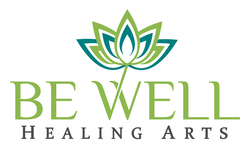




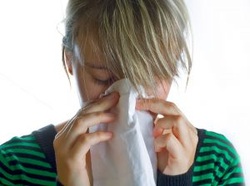
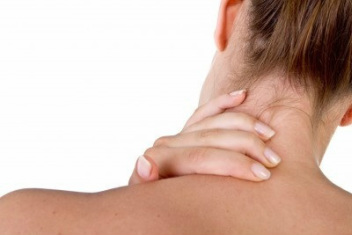

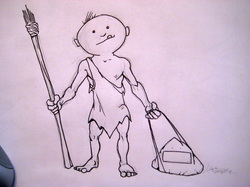
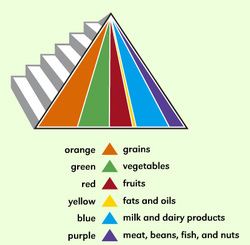
 RSS Feed
RSS Feed